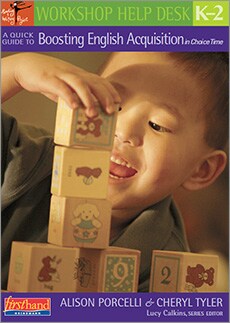
Province
National
Imprint
Heinemann
Author(s)
Lucy Calkins
If you've wondered how to tweak your workshop teaching to make it more effective and lasting, if you've needed to adapt your teaching for English learners, if you've struggled to teach grammar or nonfiction writing or test prep—if you've faced these and other specific, pressing challenges, then this series is for you. Provided in a compact format, the Workshop Help Desk series offers pocket-sized professional development.

In A Quick Guide to Boosting English Acquisition in Choice Time Alison and Cheryl explain how choice-time workshops can be structured to help English language learners imagine, create, and explore language through play. They outline two units of study for choice-time workshops, the first using open-ended materials, the other using literature to inspire play.
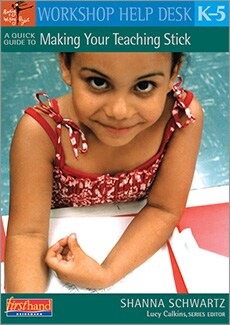
In A Quick Guide to Making Your Teaching Stick, recognizing that there is a vast difference between children getting it and children holding on to what they have learned, Shanna lays out the universal principles of “stickiness.” She describes how they can be used to tweak your teaching for a more lasting impact on young writers.
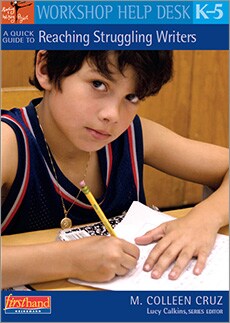
In A Quick Guide to Reaching Struggling Writers Colleen Cruz shows how to stop struggling with writers who struggle. You’ll find effective support for students who say: I’m not a good writer; My hand hurts; I don’t know how to spell; I don’t have anything to write about; I never get to write anything I want to write; I’m done.
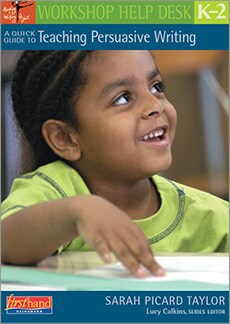
Children have voices that need to be heard and ideas that need to be understood. In A Quick Guide to Teaching Persuasive Writing, building on this premise Sarah describes why you should try a persuasive writing unit of study, describes two units of study for the primary classroom, and lists tips and ideas for helping students get their persuasive writing out into the world.
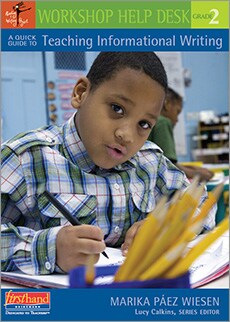
In A Quick Guide to Teaching Informational Writing, Marika Paez Wiesen offers a framework that will help you harness second graders natural inclination to explore and implement an informational writing unit of study that thoughtfully addresses the wide range of learners typically found in a second-grade classroom.
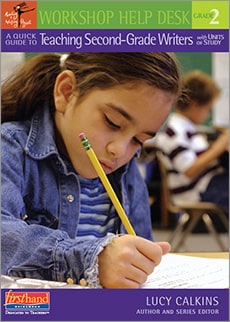
In A Quick Guide to Teaching Second Grade Writers with Units of Study Lucy Calkins chronicles a curricular calendar that will help teachers increase the volume of student writing; encourage students to lift the level of their writing by reviwing, rethinking, and rewriting their work; and empower students to write with greater independence.
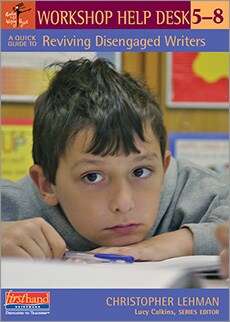
Middle schoolers can be the masters of disengagement. In A Quick Guide to Reviving Disengaged Writers, Christopher Lehman offers effective, developmentally-appropriate fixes for addressing situations that frequently sidetrack or distract adolescent writers.
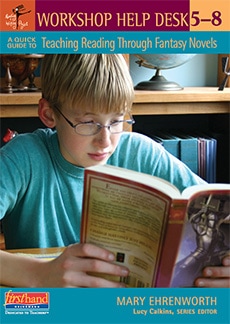
Supporting dreams of fabulous escape and transformation, fantasy literature can be especially compelling for adolescents. In A Quick Guide to Teaching Reading Through Fantasy Novels, Mary Ehrenworth offers a unit of study that harnesses the power of this expansive and poignant genre to lure even reluctant readers into reading epic novels with passion and stamina.